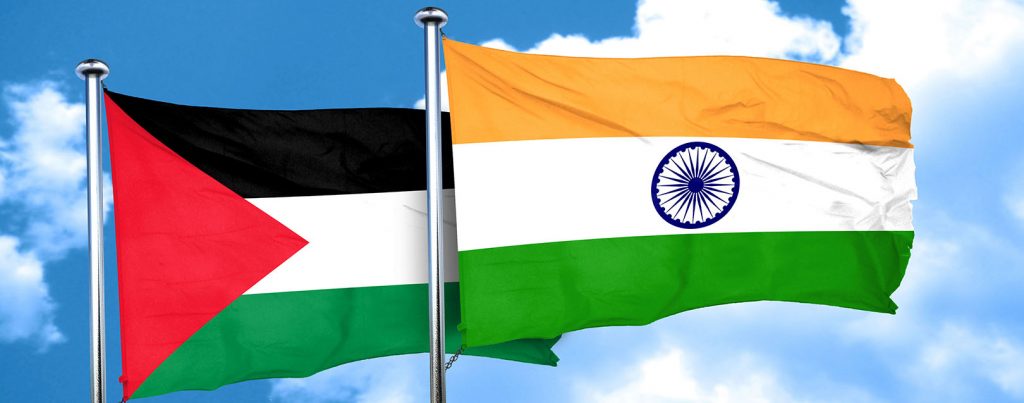(This is part of my memoir I published successively on the pages of Countercurrents on the Zionist invasion of Lebanon in 1982 and the destruction of the Palestinian refugee camp and the jail experience in the Zionist jails.)
They took us to a detention camp in the Megiddo area, not far from where we were. There we found the prison contains hundreds of detainees who preceded us; most of them are Palestinians, some Lebanese, and some Arabs, but to a lesser extent.
Somebody told me that this was the place for the Egyptian prisoners after the 1967 war, but I do not know how accurate this is.
The health situation was bit better than the previous camp because it was equipped with madrasas, blankets, bathrooms, toilets, etc.
This camp consisted of groups of tents, each house about forty people, so the tent was a crowded place with detainees.
And I think this was a Zionist measure to keep the detainees in a state of conflict and strife. Indeed, there were daily conflicts and disagreements, often over trivial matters.
This is due to the psychological situation, and the state of tension experienced by the prisoners was so tricky that a small problem might become a big one.
And I often intervened as a known teacher to solve these problems.
Among the arrested Arabs, two Yemeni youths were severely beaten, and the Zionists shouted at them that they were coming from Yemen to kill the Jews!
I have endeavored to relieve them as much as possible by showing solidarity with them and strengthening their morale. And even at a later time, when disagreements occurred with them with some Palestinian detainees, primarily because of misunderstanding and the difference in dialect. I would stand by them. I hate fanaticism and tribal thought, which says if the oppressed is from my (tribe), I will stand with him, and if he were not from my (tribe), I would not stand with him.
And this is how I was all my life, standing with the weak, whoever he is. It is a principled and moral position that I have not deviated from throughout my life.
Each morning, we would get up to sit on the ground and knee and extend our hands up on the head in an excruciating movement.
We would stay in this position for an hour and sometimes longer until the soldiers arrived with sticks to count the detainees.
The slightest sign of a prisoner could lead to punishment. It was fierce, and I was feeling angry and humiliated. I kept wondering about the morality of this world we live in. About those criminals who play victim all time, and at the same time, their history in Palestine is a history of atrocities.
The tragic thing is that the Zionist state was planted by force in 1948, the same year as the Declaration of Human Rights. The Western countries that signed this declaration are the same ones who contributed to the tragedy of Palestinians.
I had feelings of joy, even if it was simple, that I was standing in my homeland for the first time, even if I was in detention. I felt it was my country, and all of my genes matched the earth and nature.
One of the cruel things that were taking place in the prison was taking the detainees for interrogation at the Al-Jalapa detention center. They come in the middle of the night, call the people to be investigated, and throw them after covering their faces in the car, like animals.
And one day, a civilian Zionist delegation visited the jail. I don’t know if it was from the Knesset or somewhere else. We collected small stones and put them in the form of words written justice for all and peace for all.
But after the delegation left, some of those who laid stones were punished, and I was one of those. Fortunately, they forgot me with a few others. The punishment was for the prisoner to stand on one foot for a long time, and it was painful because I was exposed to it later.
It was one of the most challenging days of my life. We were beaten and humiliated daily, and the soldiers treated us as if we did not belong to the human race. So I cannot hear a Zionist Jew talk about the persecution of Jews in Europe. What the Zionist Jews are doing now with the Palestinian people is just the same atrocities.
The Zionists always talk about peace, as if Palestinians went to Eastern Europe ghettoes to fight the Jews. The problem is that the Zionist Jews are the ones who came to Palestine to deprive the Palestinian people of their homeland.
The problem is the absence of justice for the Palestinians. The peace that the Zionists want is Roman peace (Pax Romana peace ), meaning the peace imposed by the occupier. The actual approach to peace is achieving justice for the Palestinian people who are deprived of their homeland. Without that, there will be no peace in the land of Palestine .
Zionist Jews are fighting a lost war .Despite all their power they shall be defeated no matter how much they kill and oppress.it is just a matter of time.
Dr Salim Nazzal is a Palestinian Norwegian researcher, lecturer playwright and poet, wrote more than 17 books such as Perspectives on thought, culture and political sociology, in thought, culture and ideology, the road to Baghdad. Palestine in heart.












































